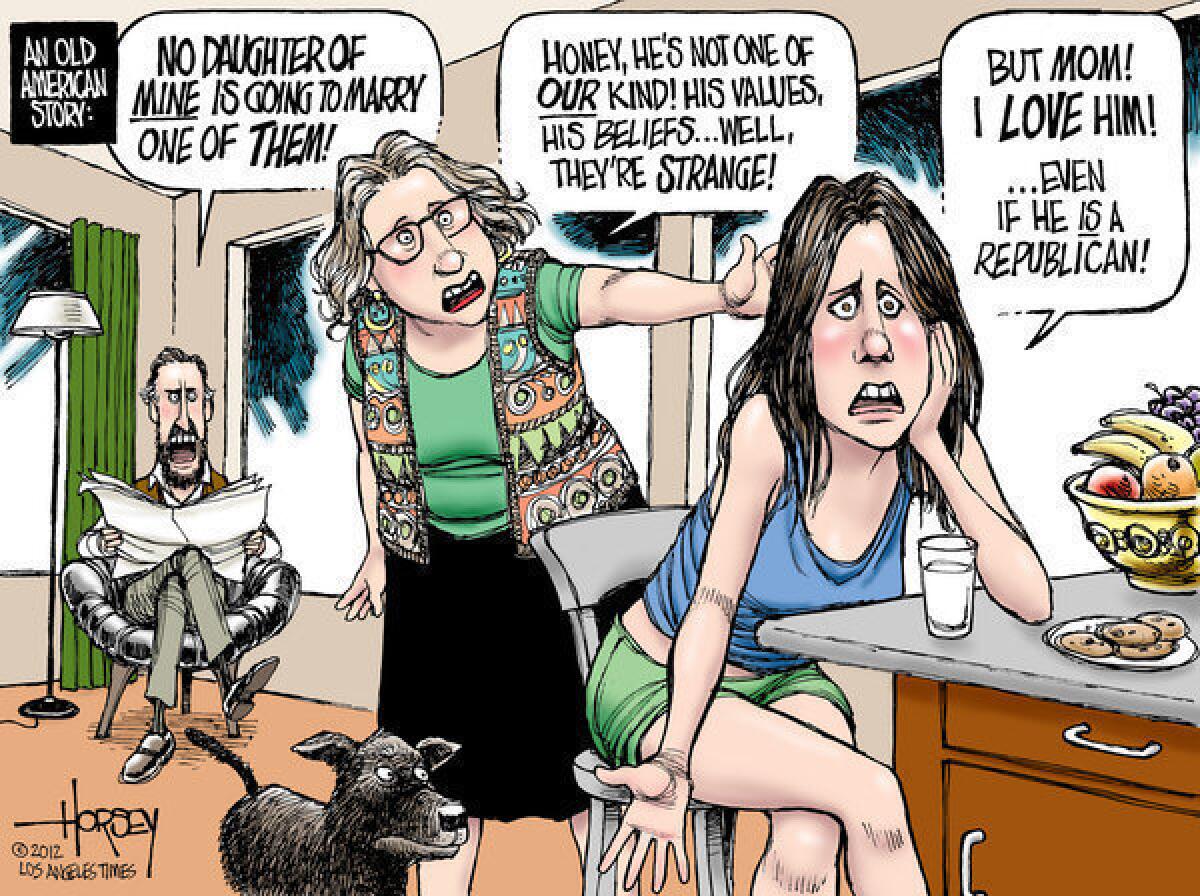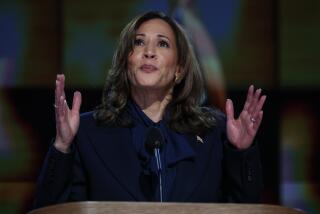America’s political divide is turning into a chasm

BRATTLEBORO, VT. -- Sunday morning, I was having breakfast at a funky café that prides itself on organic food and the languid preparation thereof. With time to observe the locals passing by, I came to an epiphany about why this green wedge of America feels so unique: Vermont is what the whole country would be like if the hippie ideals of the 1960s and ‘70s had matured and taken root everywhere.
By this I do not mean the state is just a big groovy commune. The cultural differences are subtle. Still, unlike people in many other places, folks here do seem to tolerate – even encourage – creative eccentricity. Brattleboro is a town where I discovered something called contra dancing, a sort of early American square dance in which it is perfectly OK for long-bearded men to wear skirts to stay cool. And here, last weekend, I witnessed a lively festival built around organic farming and a parade of strolling heifers.
Residing in small towns tucked into the folds of tree-blanketed hills, Vermonters seem to prefer living with simplicity, not excess. Their clothes are practical and woodsy, like they came off a rack next to the fishing gear at a mom-and-pop sporting goods store.
Vermont politics is intimate, progressive and driven by local activists. At the heifer festival, I noticed the state’s U.S. Sen. Bernie Sanders walking through the crowd just like a regular guy. That’s Bernie Sanders, the only avowed socialist in Congress. That he is hugely popular here is additional testament to Vermont’s distinct place among the 50 states.
In the 236th year of our republic, Vermont is one of many places in the country that prove the United States is still not a thoroughly homogenized nation.
*****
When it comes to American politics, the stark distinctions are actually increasing. According to a new study from the Pew Research Center, the ideological gap between Bernie Sanders and, say, South Carolina’s Sen. Jim DeMint is the same gaping chasm that separates most American voters. Over the last 25 years, on issues that once had strong support in both the Republican and Democratic parties, there is now little common ground, according to the Pew poll. Immigration, the social safety net, environmental protection and, especially, the role of government all have become deeply partisan areas of debate.
Republicans and independents who lean toward the GOP have become much more uniformly conservative – distrustful of government, environmental regulations, social services and generous immigration policies. Democrats and independents who lean left have completely opposite views. Only a tiny sliver of independent voters is ideologically untethered and that is because most of them pay scant attention to politics.
Republicans are overwhelmingly white and right wing. Democrats are a party of racial minorities and white moderates and liberals.
*****
In this great divide I see 150-year-old ghosts.
In the town squares and cemeteries throughout Vermont and the rest of New England, memorials to Union soldiers are ubiquitous. On a hill at the lower end of the Boston Common, for instance, stands a towering column topped by a goddess of democracy. This memorial gives tribute to the Massachusetts soldiers who, as the inscription on this shrine declares, “kept the Union whole, destroyed slavery and maintained the Constitution.”
Across the Southern states, Civil War monuments are just as common. In Charleston, S.C., at a park on the edge of the harbor looking out toward Fort Sumter, a similar goddess stands behind a muscular male figure carrying a sword and shield. The memorial is dedicated to “the Confederate defenders of Charleston.”
There is a 180-degree difference in perspective between the Boston and Charleston memorials. One celebrates men who fought for change, liberation and the authority of the federal government; the other commemorates those who resisted big government and disruption of a traditional way of life. Now, a century and a half after Americans slaughtered each other by the tens of thousands, a similar philosophical divide defines American politics. No longer blue versus gray or North versus South, it is blue states versus red states. It is Vermont and Massachusetts versus South Carolina and Kansas. It is San Francisco versus Birmingham, Ala., and Seattle versus Dallas.
We will have an election in November, but no matter who wins, nearly half the electorate will feel the country has been stolen from them. Regional differences are tolerable and charming, but political differences can run so deep that the people on the other side begin to look less like countrymen than like enemies.
More to Read
A cure for the common opinion
Get thought-provoking perspectives with our weekly newsletter.
You may occasionally receive promotional content from the Los Angeles Times.











